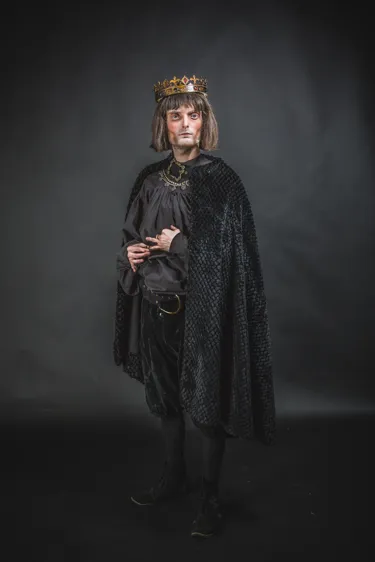The Justice of Richard III
- Saturday 21st July 2018

Richard III and the Common Man
A sincere concern for the welfare of ordinary people was an abiding feature of Richard’s career as both duke and king. Here are three northern examples in which Richard intervened directly in the life of common folk, offering justice to the oppressed and charity to those in need.
- In August 1480 Richard duke of Gloucester found in favour of John Randson, an insignificant husbandman, who complained to the duke that Sir Robert Claxton of Horden, a prominent figure of Durham society, was preventing him from working his land.
- In August/September 1483, during Richard III’s post coronation progress to the north of England, the newly crowned king gave 3s 4d to a ‘wife besides Doncaster’ as he passed by.
- Between September 1484 and March 1485 Richard III intervened twice on behalf of ‘our poor subject’ Katherine Bassingbourne, a widow of York, in her struggle to secure a house left to her in her father’s will.
Richard III’s Parliament (January-February 1484)
‘A good lawmaker for the ease and solace of the common people,’ wrote Lord Chancellor Sir Francis Bacon of Richard III; Bacon was a man who knew his acts of parliament. The high percentage of acts passed by Richard's parliament that tried to improve conditions for ordinary people reveals the reason for Bacon's good opinion.
The protection of ordinary people from corrupt officials was the subject of three acts directed at the activities of Justices of the Peace (JPs), the courts of sheriffs and piepowder courts.
- Bail was to be allowed for persons imprisoned on suspicion of felony and their possessions were to be protected until they had been formally tried and found guilty; this act generally encouraged JPs to inquire more carefully into all arrests of persons on mere suspicion.
- The standard of juries selected for sheriffs' courts was raised by decreeing that jurymen should be worth 20 shillings or more over a year - it was generally believed that the more well to do were less open to bribery.
- New penalties were introduced, and an earlier act reinforced, to correct dishonest officials at piepowder courts, which had jurisdiction over cases that arose during markets and fairs and required swift and reliable justice for the traders.
Richard's own experience of cases before his ducal council made him well aware of the damage that corrupt officials could inflict on the poorest of his subjects; it was also to be a theme of his pronouncements as king throughout his reign.
Richard’s first act as king was to call his judges to him and to decree that they dispense justice without ‘delay and favour’ to ‘every person as well as to poor as to rich’. This was to be done in ‘right strait manner’ so as not to incur the king’s displeasure.
Richard as duke and king enabled what we know today as the modern legal principals of Blind Justice and the Presumption of Innocence.